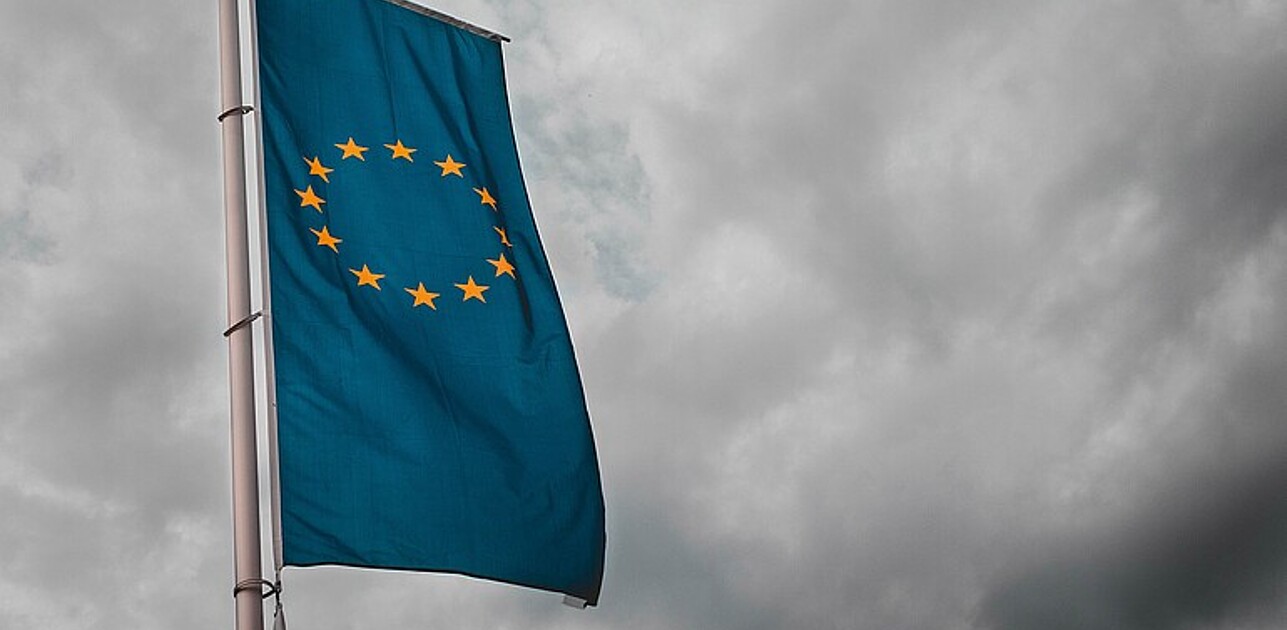

Blog: Tuesday, 31 March 2020
The coronavirus is a common enemy. And it calls for a common, democratically legitimated European policy, argue professors Arnoud Boot and Dirk Schoenmaker. The coronavirus shows to what extent our lives have become intertwined with those of people in other countries. Something occurred at a fish market in China a mere four months ago, and already public life in Europe has ground to a halt. Notwithstanding our enthusiasm for the support the government is offering Dutch companies and the working population, in the present crisis a pan-European backing of weaker countries will prove to be of crucial importance.
These weaker states should also be able to implement a support policy. The coronavirus is a common enemy that calls for a common policy. We understand the reservations about ‘transfer union’-like practices within the Eurozone, but this isn’t the right moment for the Netherlands to take a firm stand against such matters.
However, there is one important ‘but’. Some parties – as set out in an initiative presented by nine predominantly southern EU member states – are calling for the issue of Eurobonds to alleviate the crisis. This is a permanent mechanism in which all EU member states stand surety for each other: it is a complete mutualisation of Europe’s collective debt.
There is no democratic legitimisation for this step, and we can expect such guarantees to create huge tensions in the foreseeable future. Moreover, they aren’t actually necessary. The European Stability Mechanism (ESM) offers far better framing and focus. Provided it is backed by the European Central Bank, it will also be just as effective – without having to highlight Eurobonds’ lack of democratic legitimisation.
The European Stability Mechanism is a European Union agency that provides financial assistance, in the form of loans, to Eurozone countries experiencing or threatened by severe financing problems. This assistance is granted only if it is proven necessary to safeguard the financial stability of the euro area as a whole and of ESM Members. It is a permanent agency, based in Luxembourg, and has replaced the temporary European Financial Stability Facility (EFSF).
It is important for the Dutch government to adopt a far more positive attitude towards the ESM solution and keep its powder dry to avoid wasting European funds and the hassles and troubles of a transfer union. It will definitely need to keep some measures in reserve for future developments, for example to keep further advances toward unlegitimated Eurobonds off the table.
However, Europe will need to be decisive and convincing. The first steps have already been taken: the European Commission has located dozens of billions of euros within the existing budget, and has relaxed budgetary requirements for the member states. The European Central Bank has announced it will take a number of measures to stimulate the economy, including buying over 1 billion euros in debt. And in the wings, the outlines of the ESM have also been cautiously expanded.
Nevertheless, most of the measures currently being taken in Europe are at the national level. And it’s striking to see how much more money the northern member states can access than their neighbours to the south. Last weekend, plans leaked for a German aid package of over 350 billion euros. The Dutch Minister of Finance, Wopke Hoekstra, announced that over the next three months, the Netherlands’ government would allow public debt to increase by 45 to 65 billion euros. Italy presented a spending programme of 25 billion euros: far more modest, yet also far more problematic due to Italy’s precarious financial position.
The main danger is that the southern member states, which never fully recovered from the sovereign debt crisis, won’t be able to take ‘all necessary measures’. As a result, they risk falling even further behind as the coronavirus claims more lives or destroys even more businesses in these countries – or because the pandemic throws Italy’s public finances even further out of whack. What’s the most likely scenario? All of the above.
From the perspectives of public health and of the economy, this is a dangerous prospect. And not just for the afflicted countries. It is in the interests of each EU member state that all European countries that are hit by the coronavirus are able to take their own necessary measures as soon as possible to get a grip on the pandemic and mitigate the economic fallout.
To make this possible, we propose setting up a special line of credit for all members of the Eurozone within the ESM. The member states can make use of this facility depending on the extent to which the virus has impacted their public health and national economy. While this step calls for solidarity between the member states, it will also reduce the threat posed to public health and economic and financial stability across the continent.
To bring the COVID-19 pandemic in the EU under control, all national governments need to be able to finance the required expenditure. The Pandemic Emergency Purchase Programme (PEPP) recently announced by the European Central bank (ECB) is an important prerequisite in this context.
Yet despite the flexibility announced by the ECB, which will also allow it to support specific countries, it remains difficult for the central bank to execute this programme without explicit political approval. It is important that support programmes of this kind are broadly endorsed. A line of credit that is linked to the ESM is one way to arrive at the required democratic legitimisation and consequently lay the groundwork for pan-European aid programmes.
We don’t know whether all EU member states will be hit equally hard by this pandemic. However, we know for sure that there is a disparity in terms of states’ capacity to cushion this blow. The Netherlands can spend around 80 to 90 billion euros before reaching the government debt limit of 60 per cent of GDP as outlined in the European Commission’s Stability and Growth Pact (but of course, this is too static a representation, since the economic downturn will rapidly drive up the debt ratio). In contrast, Italy will need to redeem over 1,300 billion euros in debt before its debt falls below that maximum.
It is in the interest of each EU country that its fellow member states are all able to take the necessary measures to control the pandemic. We are bound together in a common fate by our internal market, by trade and by the euro. And these shared factors should also unite us when we tackle threats from outside the EU; they should appeal to our sense of joint responsibility. This crisis, which German Chancellor Angela Merkel has called ‘our greatest challenge since the Second World War’, is a great opportunity to show what Europe is capable of if it truly acts as a union.
Arnoud Boot is professor of Corporate Finance at the University of Amsterdam. Dirk Schoenmaker is professor of Banking and Finance at Rotterdam School of Management, Erasmus University.
Rotterdam School of Management (RSM)

RSM offers Executive Education and Master programmes in various business areas for any stage of your career. For instance:

Science Communication and Media Officer
Rotterdam School of Management, Erasmus University (RSM) is one of Europe’s top-ranked business schools. RSM provides ground-breaking research and education furthering excellence in all aspects of management and is based in the international port city of Rotterdam – a vital nexus of business, logistics and trade. RSM’s primary focus is on developing business leaders with international careers who can become a force for positive change by carrying their innovative mindset into a sustainable future. Our first-class range of bachelor, master, MBA, PhD and executive programmes encourage them to become to become critical, creative, caring and collaborative thinkers and doers. www.rsm.nl
For more information about RSM or this article, please contact Danielle Baan, Media Officer for RSM, via +31 10 408 2028 or baan@rsm.nl.
